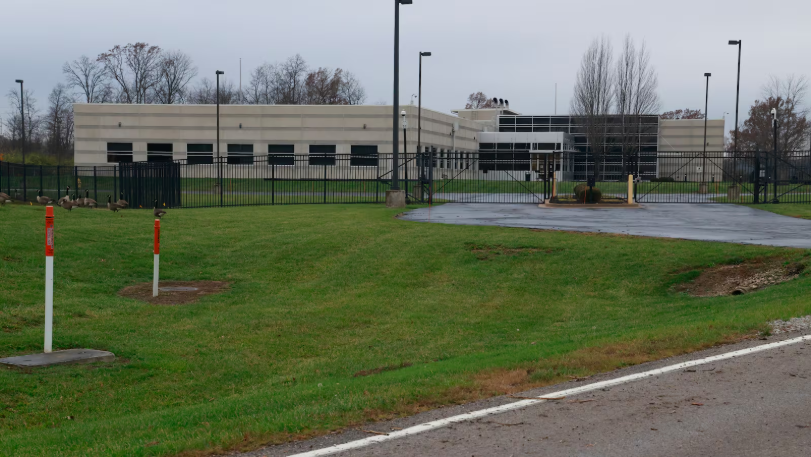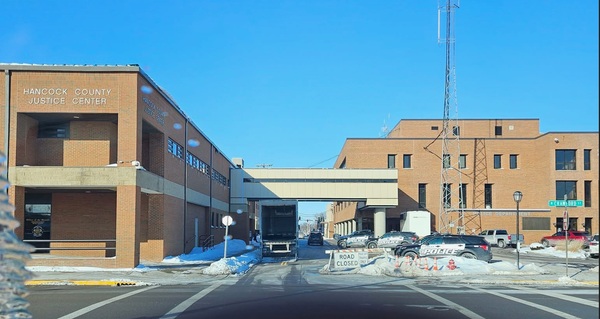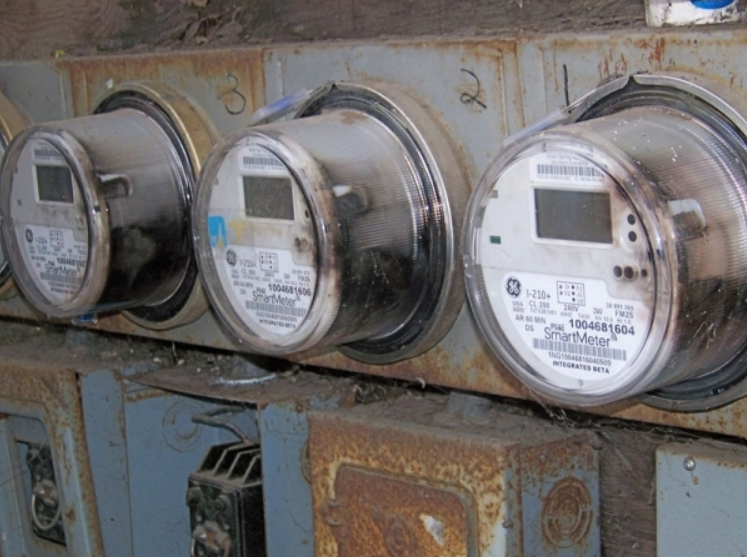Springfield Commissioners Clarify Data Center a Foregone Conclusion

BY JEFF SKINNER
SPRINGFIELD - Across the state local municipalities are working diligently to sell the public on the construction of data centers that the public, if not entirely oblivious on, are actively opposing. While the city of Springfield’s record of standing in defiance of the public will has been well documented, the current narratives and pushes towards constructing such a facility in the city is a uniquely alarming maneuver. At the October 21 meeting, a member of the public inquired on the commission's process for vetting agenda items, specifically related to the proposed data center project. The received response from the commission may represent the exact deficit the commission has in understanding why the public is so outraged.
During the city commissioners October 21 meeting, a member of the public asked the commissioners questions regarding their process for reviewing agenda items and how thoroughly they vet or investigate initiatives before voting on them.
“Last meeting, I asked about the 5C data center,” Resident Melissa Rexroth said. “I asked if anyone researched how once it is operational, it will affect our resources. Studies show the prices of electricity and water will skyrocket due to demand. Brian [Heck] only stated the building was built to electric code, which was not a question I'd asked. How will this center benefit Springfield residents when they cannot afford their electric bills or when water could become scarce due to the data center's consumption? What protections has the city put in place for its residents? What cooling system will it have? Is the water plant prepared for what is to come? Will it pollute our water supply? Why are so many tax abatements given so freely when this city is in such despair? I am not alone in asking that the city stop giving tax abatements to big builders. I had asked how you research items on the agenda and Bridget stated she reads what is given to her. If she has questions, she asks Brian who prepares the paper and the links. Does anyone do their due diligence and do independent research into any of the topics? How do you know what is being handed to you is the complete picture and all facts you need to make a true informed decision when voting?”
It has been noted that the data centers already in operation in the state have caused such an alarming drain on the entire state’s electrical grid, that the price of energy for every municipality has increased. In some areas, electricity costs have nearly doubled for residents. As data centers are essentially massive heaters, requiring constant cooling through processes involving fresh water and are run 24/7, the energy spike is not likely to decrease at any point in the future. In fact, the need for more power will only increase as data centers will increase in their purpose to expand with Next Generation 9-1-1 services and public surveillance such as the fulfillment of the Information Awareness Project from companies like Palantir.
At this time, data centers serve to house IT infrastructure like servers, storage systems, and networking equipment to store, process, and distribute data, primarily from various cloud servers and AI programs. In short, every time someone’s grandmother asks Grok to dispel a narrative on X, they are also increasing the cost of the entire state’s electrical bill and requires many gallons of water to cool the area back down.
It has also widely been reported that data centers additionally underreport their actual environmental impact to the local community, including water usage, pollutant output and soil contamination. A recent guardian article found that data centers, on average, underreport their pollutant output by around 662% Additionally, while politicians like Rep. Roy Klopfenstein, who proposed legislation to let energy companies throttle residents' energy usage, is telling the public data centers can recycle water, areas with data centers seem to consistently experience draughts surrounding a necessary commodity to maintain life.
At the commission meeting, Mayor Rue and others on the commission echoed a similarly disconnected sentiment, echoing statements like Klopfenstein’s on the ‘modernization’ of data centers ability to recycle water and displayed their ‘due diligence’ in investigating the agenda items by simply asking their city managers and utility staff on their opinions on the hypothetical water usage of a proposed 5C data center.
The commission's response illustrated the exact concerns the public stated, that being the commissioners do not appear to do any independent investigations on their own to the agenda items they are voting on, instead deferring to administrative staff who themselves, do not appear to be offering independent evaluations of proposed risks. The commissioners did not outline any proposed bulwarks for which they have considered to ensure the data center does not further negatively impact the community, potentially because of the commission's adversarial nature with the public.
Still, members of the public are asking themselves why the push is even occurring, essentially ‘who asked for this?’
While searching the curated algorithm of a Google search can produce no end to articles claiming their presence will increase GDP, a long outdated model that does not track actual increases in household income to a selected area, looking at the actual financial picture shows a stark picture of massive corporations leaching off of local communities to foot the bill for operating digital bot farms and creating surveillance infrastructure that the public overwhelmingly opposes.
While those in positions of power often tout the huge financial benefits to local communities for data center, the average salary of data center technicians is around $50-60,000 per year with most centers capping employee counts at around 10-100 workers depending on the size. As we have previously reported, while data centers often advertise massive spikes in employment, these numbers are rarely maintained. With these numbers, if we took a median approach with both numbers, we would be looking at a potential average tax income amount for the city of around $968,000 per year in total for all employees, if the center maintains an employee count of 55. Bearing in mind, the center promises 100 jobs to be created but data has shown centers regularly downsize over time and maintain roughly 12 percent of their workforce once fully operational. Given this, our assessment is incredibly generous.
This would be put against over a decade long tax abatement for the center, massive spikes in energy costs for residents, decreases in their own property values due to air and water contamination potential and location degradation and a total cost of construction somewhere between $16.1 million and $1.32 billion. Why this would make any fiscal sense for the city comes simply down to how valuable they may look at the additional income tax for somewhere between 12 and 50 extra jobs, as their current funds from income tax has completely flattened, leading to the city considering charging for non-emergency fire department calls.
In a true representative republic, the question would be asked if the residents of the city think this move is intrinsically valuable enough to offset the very broad costs of its existence. Seeing all of this information, it becomes difficult to not echo the concerns from the public on this matter; that being, who is pushing for these projects in the city and why are those who claim to be part of a representative republic, consistently shirking their responsibilities to actually represent anyone. Time will tell how the residents of Springfield will handle the encroaching construction of the data center and the level of detriment it will pose in their daily lives.




